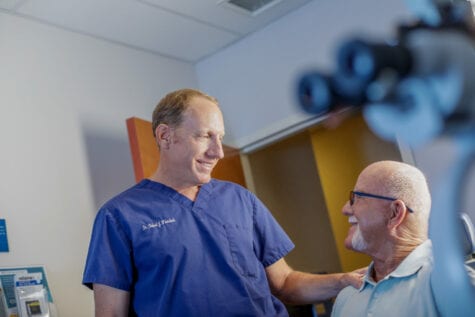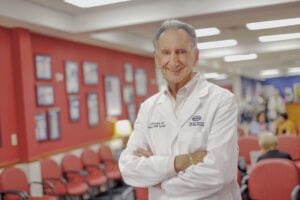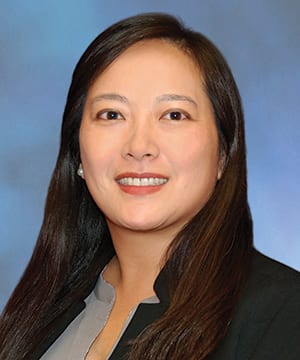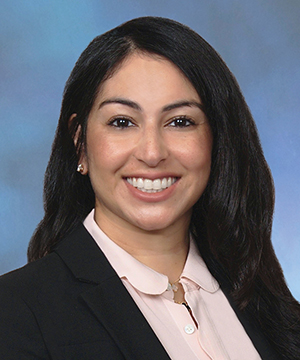What Are Floaters?
 Floaters look like tiny specks floating around on the surface of your eye. However, no matter how much you rub your eyes or use eye drops, these specks are still there. That’s because these specks are actually on the inside of your eye.
Floaters look like tiny specks floating around on the surface of your eye. However, no matter how much you rub your eyes or use eye drops, these specks are still there. That’s because these specks are actually on the inside of your eye.
Floaters come in all shapes and sizes. They can appear as cobwebs, spots, thread-like strands, or squiggly lines.
Causes of Floaters
The middle of your eye is filled with a clear substance called vitreous gel. Light passes through the vitreous gel and onto the retina. As you age, pieces of the vitreous gel begin to clump together. These little clumps cast a shadow on your retina, resulting in the appearance of specks floating in your vision. The vitreous gel can also start to shrink and pull away from the eyewall. This is common with age and is referred to as posterior vitreous detachment.
Floaters are also quite common after cataract surgery or if you have had an inflammation of the eye.
Treatment for Floaters
Although floaters themselves are harmless, there are instances where you should seek treatment.
Floaters can affect your field of vision over time, making it more difficult to go about your everyday life. In other cases, a sudden increase in floaters can be a sign of retinal detachment. Contact us immediately to be evaluated by one of our Retina-Vitreous Specialists if you experience this issue.
What Are Flashes?
 Flashes appear in the peripheral vision as “flashes” of bright light, similar to lightning. Some patients compare them to “seeing stars” after being hit on the head. Flashes are common in older people and can appear in one or both eyes and may last up to 20 minutes. They can occur for weeks at a time, or even months.
Flashes appear in the peripheral vision as “flashes” of bright light, similar to lightning. Some patients compare them to “seeing stars” after being hit on the head. Flashes are common in older people and can appear in one or both eyes and may last up to 20 minutes. They can occur for weeks at a time, or even months.
Causes of Flashes
It is common for older people to experience flashes occasionally. Flashers can be a symptom of posterior vitreous detachment, usually occurring as the vitreous pulls or rubs on the retina.
If you experience flashing lights for the first time or a sudden increase in the frequency of flashes, coupled with one or more of the following, you may be experiencing retinal detachment:
- New floaters
- A shadow in your peripheral vision
- A gray curtain that covers part of your vision
If you experience any of these symptoms, contact us immediately to be evaluated by one of our specialists.
Treatments for Floaters and Cobwebs
 Most floaters are not a problem but when they are very dense they can become a nuisance for many people. Now with advances in technology, The Eye Institute of West Florida is one of the few practices able to eliminate your annoying floaters with a simple laser procedure called an AVCS Laser.
Most floaters are not a problem but when they are very dense they can become a nuisance for many people. Now with advances in technology, The Eye Institute of West Florida is one of the few practices able to eliminate your annoying floaters with a simple laser procedure called an AVCS Laser.
Benefits of AVCS (Anterior Vitreous Clouding Syndrome) Laser:
- Highly effective in providing functional improvement
- Low complication rate
- The simple, pain-free out-patient procedure
- Immediate results
- A high degree of patient satisfaction
- Avoids needing a vitrectomy when successful
Vision is restored immediately and the patient is able to return to daily activities right away.
Schedule your Retina Evaluation today
Call (727) 581-8706 to schedule your appointment
Meet Your Retina Care Specialists
 Leonard S. Kirsch, MD is a fellowship-trained vitreous and retina specialist. He is internationally known for the numerous papers and lectures he has presented here and abroad. Dr. Kirsch is currently an active participant in ongoing research to find new treatments for diseases of the retina. His expertise in the most advanced diagnostic and treatment techniques of all diseases of the retina, macula, and vitreous make Dr. Kirsch one of the elites in his field. In the Tampa Bay area, Dr. Kirsch pioneered the use of Photodynamic Therapy with Visudyne©, and intravitreal Macugen©, Lucentis©, and Avastin© for the treatment of age-related macular degeneration. Dr. Kirsch was also among the first surgeons in Florida to perform 25 gauge “no-stitch” vitrectomy in 2001. He is certified by the American Board of Ophthalmology and is a fellow of the Royal College of Surgeons of Canada.
Leonard S. Kirsch, MD is a fellowship-trained vitreous and retina specialist. He is internationally known for the numerous papers and lectures he has presented here and abroad. Dr. Kirsch is currently an active participant in ongoing research to find new treatments for diseases of the retina. His expertise in the most advanced diagnostic and treatment techniques of all diseases of the retina, macula, and vitreous make Dr. Kirsch one of the elites in his field. In the Tampa Bay area, Dr. Kirsch pioneered the use of Photodynamic Therapy with Visudyne©, and intravitreal Macugen©, Lucentis©, and Avastin© for the treatment of age-related macular degeneration. Dr. Kirsch was also among the first surgeons in Florida to perform 25 gauge “no-stitch” vitrectomy in 2001. He is certified by the American Board of Ophthalmology and is a fellow of the Royal College of Surgeons of Canada.
 Richard J. Hairston, M.D. is a vitreous and retina specialist. He joined The Eye Institute in June 2001 coming to us from a busy retina practice in Washington, DC. Dr. Hairston graduated from the Johns Hopkins University School of Medicine and did his residency at the Wilmer Ophthalmological Institute at Johns Hopkins University. He completed a fellowship in diseases and surgery of the retina and vitreous at The Center for Retina Vitreous Surgery, Memphis, Tennessee. He then served as Assistant Chief of Service in Ophthalmology and Director of the Ocular Trauma Service at Johns Hopkins Hospital. Most recently he was Assistant Professor of Ophthalmology at Johns Hopkins University. He is certified by the American Board of Ophthalmology. Dr. Hairston enjoys an international reputation as an outstanding retina and vitreous surgeon.
Richard J. Hairston, M.D. is a vitreous and retina specialist. He joined The Eye Institute in June 2001 coming to us from a busy retina practice in Washington, DC. Dr. Hairston graduated from the Johns Hopkins University School of Medicine and did his residency at the Wilmer Ophthalmological Institute at Johns Hopkins University. He completed a fellowship in diseases and surgery of the retina and vitreous at The Center for Retina Vitreous Surgery, Memphis, Tennessee. He then served as Assistant Chief of Service in Ophthalmology and Director of the Ocular Trauma Service at Johns Hopkins Hospital. Most recently he was Assistant Professor of Ophthalmology at Johns Hopkins University. He is certified by the American Board of Ophthalmology. Dr. Hairston enjoys an international reputation as an outstanding retina and vitreous surgeon.
 Janie Ho M.D., is a board-certified ophthalmologist, fellowship-trained in medical and surgical vitreoretinal diseases such as macular degeneration, diabetic retinopathy and retinal tears and detachments. She has been educated at some of America’s finest institutions. She received her Bachelor of Arts from Harvard University and her medical degree from Duke University. She went on to ophthalmology residency at the University of California, San Francisco. Following residency, Dr. Ho continued on to a fellowship in vitreoretinal diseases at the prestigious Massachusetts Eye and Ear Infirmary of Harvard Medical School. Dr. Ho has participated in angiogenesis research, investigating causes and treatment for common retinal disorders.
Janie Ho M.D., is a board-certified ophthalmologist, fellowship-trained in medical and surgical vitreoretinal diseases such as macular degeneration, diabetic retinopathy and retinal tears and detachments. She has been educated at some of America’s finest institutions. She received her Bachelor of Arts from Harvard University and her medical degree from Duke University. She went on to ophthalmology residency at the University of California, San Francisco. Following residency, Dr. Ho continued on to a fellowship in vitreoretinal diseases at the prestigious Massachusetts Eye and Ear Infirmary of Harvard Medical School. Dr. Ho has participated in angiogenesis research, investigating causes and treatment for common retinal disorders.
 Sejal Shah M.D., is a board-certified, fellowship-trained Retina Specialist. Dr. Shah received her medical degree from the University of South Florida. She began her postgraduate training with an internship in medicine at UCLA, followed by ophthalmology training at the University of South Florida. She went on to complete a fellowship at the prestigious Bascom Palmer Eye Institute, specializing in the diagnosis and treatment of retinal disorders. Dr. Shah also earned a B.S. degree with honors in Nutritional Science from the University of Florida. Dr. Shah brings her expertise as a medical retinal specialist with skills in managing and treating vitreoretinal pathology which including age-related macular degeneration and diabetic retinopathy. Her research has appeared in publications such as Ophthalmic Surgery, Lasers, and Imaging Retina; Clinical Ocular Oncology; Survey of Ophthalmology; International Ophthalmology Clinics; and Survey of Ophthalmology. In her spare time, she enjoys spending quality time with her family and friends, traveling, and trying to keep up with her twin boys.
Sejal Shah M.D., is a board-certified, fellowship-trained Retina Specialist. Dr. Shah received her medical degree from the University of South Florida. She began her postgraduate training with an internship in medicine at UCLA, followed by ophthalmology training at the University of South Florida. She went on to complete a fellowship at the prestigious Bascom Palmer Eye Institute, specializing in the diagnosis and treatment of retinal disorders. Dr. Shah also earned a B.S. degree with honors in Nutritional Science from the University of Florida. Dr. Shah brings her expertise as a medical retinal specialist with skills in managing and treating vitreoretinal pathology which including age-related macular degeneration and diabetic retinopathy. Her research has appeared in publications such as Ophthalmic Surgery, Lasers, and Imaging Retina; Clinical Ocular Oncology; Survey of Ophthalmology; International Ophthalmology Clinics; and Survey of Ophthalmology. In her spare time, she enjoys spending quality time with her family and friends, traveling, and trying to keep up with her twin boys.

